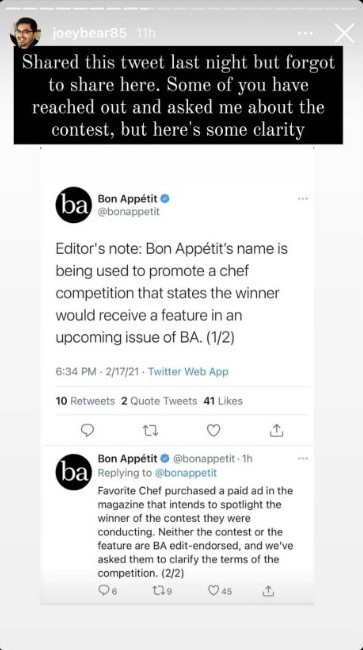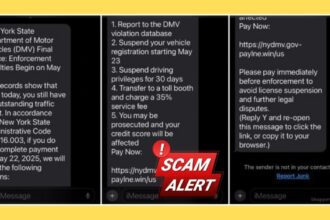In the competitive world of culinary arts, aspiring chefs are constantly seeking opportunities to showcase their talents and gain recognition. Online cooking competitions have emerged as a popular platform, with FavChef being one of the most visible. But behind the alluring promises of cash prizes and magazine features lies a business model that has raised eyebrows among industry professionals and contestants alike.
The Evolution of FavChef: From Controversy to Refinement
FavChef began making headlines in 2021 when it promised contestants a chance to win $20,000 and a feature in Bon Appétit magazine. The competition, run by Crow Vote LLC (a company registered by Scottsdale businessman Darrin Austin), quickly attracted thousands of hopeful chefs. However, controversy erupted when Bon Appétit publicly distanced itself from the contest.

“Editor’s note: Bon Appétit’s name is being used to promote a chef competition that states the winner would receive a feature in an upcoming issue of BA,” the magazine tweeted, later clarifying that “Favorite Chef purchased a paid ad in the magazine that intends to spotlight the winner of the contest they were conducting.”
This revelation prompted many contestants to withdraw, including Arizona chef Brenda Ogero, who told the Arizona Republic: “It just started sounding fishy. It wasn’t about the money anymore. It was about honesty and integrity at this point.”
Since then, FavChef has refined its approach. The 2025 competition offers a $25,000 cash prize, an advertorial in Taste of Home magazine, and a cooking experience with celebrity chef Carla Hall—with the total prize package valued at $83,000. The competition now explicitly states that the magazine feature is a paid advertisement rather than editorial content.
The Pay-to-Vote Business Model: Following the Money
At the core of FavChef’s business model is a voting system that encourages monetary contributions:
- Free daily votes: Each person can cast one free vote every 24 hours
- Paid votes: Additional votes can be purchased, creating a “pay-to-win” dynamic
In the 2021 competition, only 25% of vote proceeds went to charity (Feeding America), with the remaining 75% presumably retained by the company. By 2025, the competition has increased transparency, disclosing that 50% of proceeds go to the James Beard Foundation, while 36.5% cover “competition fees” and 13.5% go toward “variable costs.”
Former contestant Chef Sémone Hopkins shared in a Reddit comment: “I was in this competition for 2021. I made it to the top 10. And the whole time my supporters were prompted to ‘buy votes’ by donating money to increase their voting power. Instead I told them to only use the daily free vote. After the top 10 they gave a bargain on the donating votes and I knew then it was about the money and not the chef content.”
The financial implications for contestants can be significant. One Reddit user reported: “I have a friend who paid $10,000 to her friends to vote for her. She thought she can win the money back. If she is spending $10k, that means all the other competitors in front of her are spending more.”
Legal Structure: A Fundraiser with Fine Print
FavChef is operated by Colossal Management, LLC, which describes itself as “a nationally registered professional fundraiser that inspires people to advocate for themselves and those in need.” The competition operates on behalf of DTCare (a 501(c)(3) public charity), which then grants portions of the proceeds to another charity (currently the James Beard Foundation).
This structure creates a complex web that technically qualifies as charitable fundraising while generating significant revenue for the organizing company. The competition’s rules and terms contain extensive protections for the organizers:
- No refunds on any donations/votes
- The competition can be terminated at any time
- All disputes must be settled through binding arbitration in Phoenix, Arizona
- Class action lawsuits are explicitly prohibited
According to the competition’s most recent rules: “Donations raised from votes by donation cast during this Competition go directly to DTCare, which will subsequently grant the donations, minus Competition fees (36.5%) and variable costs (including payment processing fees, operating and prize costs, etc., not to exceed 13.5%).”
Celebrity Endorsements: Legitimacy by Association
FavChef has strategically associated itself with established culinary personalities to enhance its legitimacy. The 2021 competition featured Eddie Matney, a longtime figure in Arizona’s dining scene, as its “host.” The 2025 competition has expanded this approach, featuring celebrity chefs Carla Hall, Aaron Sánchez, and Andrew Zimmern.
These endorsements provide a veneer of credibility that helps attract contestants and voters. The competition now includes “Chef’s Pick” prizes, where these celebrity chefs select winners for specialized categories, each receiving prizes valued at $8,000.
However, the extent of these celebrities’ involvement in the actual competition remains unclear. The Arizona Republic reported being unable to reach Eddie Matney for comment during their investigation of the 2021 competition, and the current rules mention only that winners will have “experiences” with the celebrity chefs, with “specific date(s) based upon availability.”
The Digital Ecosystem: Is Data the Real Prize?
Beyond the obvious revenue from vote purchases, FavChef’s digital infrastructure serves another potential purpose: data collection. Contestants must submit personal information and photographs, while voters must register and provide contact details.
Phoenix attorney Ryan R. Johnson, certified in data privacy law, reviewed FavChef’s privacy policy for the Arizona Republic and noted that “the contest reserves the right to resell or share people’s personal information with third parties unless users specifically object to it.”
This data collection extends to communication channels, with the competition’s terms stating: “By providing your mobile phone number, you agree that Operator may contact you at the number provided via text message” and “By providing your email address, you agree to receive emails from Operator (including newsletter, updates, and promotional offers related to the Competition).”
The competition appears to be part of a larger ecosystem, with Crow Vote/Colossal operating multiple similar competitions including “America’s fav teacher,” “greatest baker,” “America’s fav pet,” and others—all using the same voting-based fundraising model.
Final Verdict: Is FavChef a Scam Cooking Scheme?
Whether FavChef constitutes a “scam” depends largely on how one defines the term. From a strictly legal perspective, the competition operates within the boundaries of the law—disclosing its terms (albeit in lengthy documents) and delivering the promised prizes to winners.
However, if we consider a scam to be something that misleads or exploits participants, there are concerning elements:
- The competition encourages contestants to solicit increasingly large donations from their networks, with most proceeds not going to charity
- The system inherently favors those with financial resources or wealthy connections
- The competition has a history of misleading marketing regarding its relationship with prestigious publications
- The extensive limitations on liability and dispute resolution mechanisms protect the organizers at the expense of participants
Ultimately, FavChef represents a sophisticated monetization of aspiring chefs’ dreams and ambitions. While not illegal, the competition has evolved from overtly misleading practices to a more transparent—but still fundamentally profit-driven—model that leverages contestants’ networks for financial gain.
For chefs considering participation, the key question might not be whether FavChef is technically a scam, but whether the potential benefits outweigh the costs—both financial and reputational—of asking their supporters to spend money on votes rather than, perhaps, supporting their culinary ventures directly.
As one Reddit commenter succinctly put it: “It’s a scam and it’s not a scam. It’s a pay-to-win popularity contest with a cooking theme… So basically I think a lot of us are still in it because we could really use 50k and we accept that it’s scammy. But the bigger danger is the people who are clueless and just dumping money into the contest.”
































